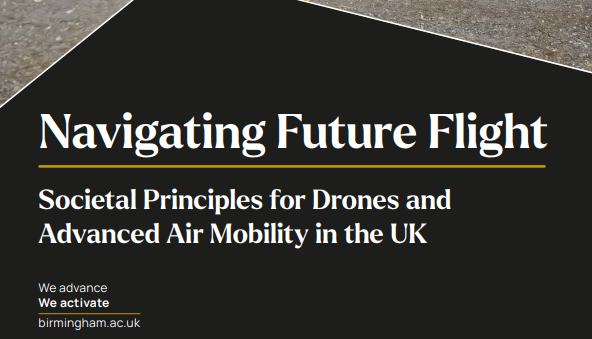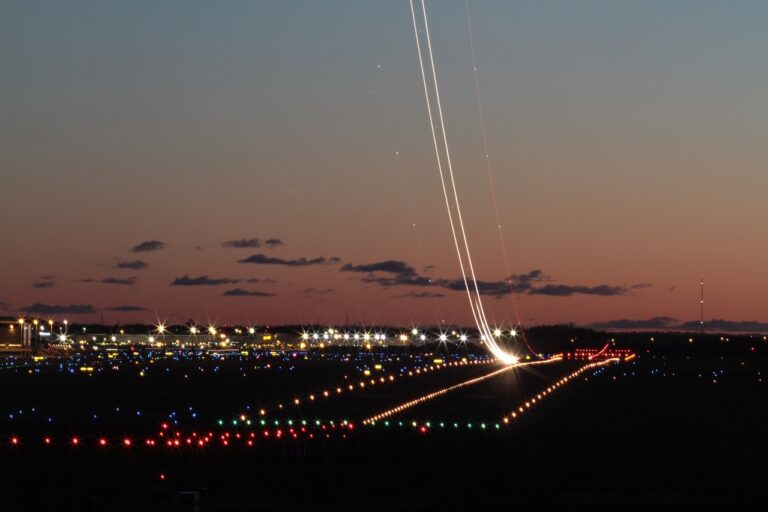Resource
Share this content
Overview of Future Flight Challenge Public Engagement and Social Insight Reports
This overview provides a summary of two reports exploring public perspectives on Future Flight technologies (drones, eVTOLs, and regional air mobility). The reports include findings from a deliberative dialogue with a diverse group of UK citizens and a nationally-representative survey of over 3,000 adults. Both studies were led by the University of Birmingham Future Flight team and funded by the UKRI Future Flight Challenge.
Key points:
- The deliberative public dialogue outlines a citizen-developed Framework for the rollout of Future Flight technologies, systems and services. This framework is based around 14 top-level principles and recommendations.
- The survey was in part co-designed with deliberative dialogue participants and highlights where the concerns, expectations and principles outlined by the dialogue participants map onto national level views across the UK.
- Together, these two research reports give us the clearest picture of UK-wide citizens’ views on the roll out of Future Flight technologies, systems and services in the UK.
The deliberative dialogue and survey both aimed to understand the publics’ hopes and fears around the future operation of Future Flight technologies, systems and services within the UK as well as their expectations for regulation, decision-making and governance.
The three Future Flight technologies were:
- Non-passenger-carrying drones
- Electric Vertical Take-Off and Landing vehicles (eVTOLs)
- Electric/hydrogen Regional Air Mobility (RAM).
Top-Level Findings from both studies:
Overall, there is an indication from UK publics that the benefits of Future Flight technologies could be perceived as outweighing the drawbacks. This is especially notable where Future Flight could:
- Provide benefits to public services delivery in terms of reducing cost and increasing efficiency. Overall, there was stronger support for socially beneficial use cases including: supporting emergency services response, such as search and rescue, fire services and motorway accidents; supporting disaster relief, delivery of medical supplies or inspection and maintenance of infrastructure in hard to reach or high-risk environments.
- Increase connectivity across the UK, not only to rural, remote or isolated communities, but to larger population centres (e.g. transport between towns and cities) which are currently poorly served by public transport, road or rail connections.
- Increase overall sustainability of UK-wide transportation systems and the reduction of fossil fuel usage within aviation and overall, as part of a wider multi-modal integrated green transport approach. When it comes to flight specifically, innovation is seen as particularly important in reducing the climate impacts of aviation.
- Increase economic opportunities for the UK as part of a wider green economy and the creation of a range of new skilled jobs across the UK (e.g. manufacturing, engineering, drone or eVTOL pilots, airspace management etc).


